Subscribe to our joint NEWSLETTER for
EUTROPIAN &
COOPERATIVE CITY MAGAZINE

AGORA is an exchange project that deploys and adopt creative governance instruments for public administrations in the Danube region. These instruments are used to effectively involve, connect and empower a wide range of stakeholders in the reintegration of vacant buildings and land, whether it be public or private.
AGORA develops a policy instrument platform that empowers ten cities in the Danube region to become drivers, catalysts, and mediators for the reintroduction of vacant or underused land and buildings into the productive urban value chain.
Numerous initiatives have aimed to reuse under-valued physical spaces and integrate skilled youth into circular economies, but replicating these have often proven to be difficult. AGORA aims to fill the gap, and provide public administrations with the tools to support initiatives, citizens and various stakeholders, and provide them with support so they can find new uses out of underused spaces and contribute to social and economic inclusiveness.
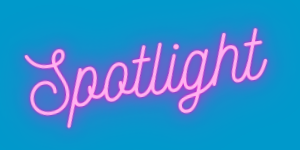
The Danube is Europe’s second largest river, flowing through Eastern and Central Europe, connecting many European countries and numerous urban centers. It is a source of life, trade, exchange, and connection.
The economic crisis of 2008 created an opportunity for public administrations in the region to enact efficient and meaningful change in planning policies. The need to harness local potential is tantamount for the region, and this can be accomplished through the utilization of inclusive and creative instruments for physical and social regeneration.
As Eutropian, we pride ourselves in having the capacity and capability of connecting various stakeholders and initiatives with public administrations: we’ve had success in voicing the concerns of initiatives and connecting them with policy makers in the food markets project as well as others such as gE.CO, Open Heritage and PlaceCity.
Creating dialogue and joint projects that will benefit social inclusiveness and promote the utilization of untapped potential is something we’re passionate about, and fits right within our motto: Urban Justice.
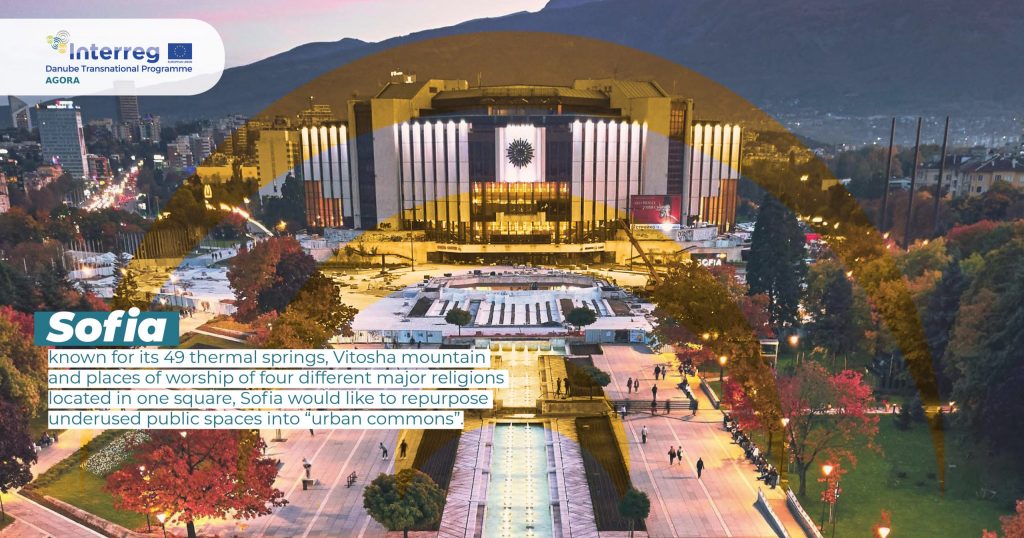
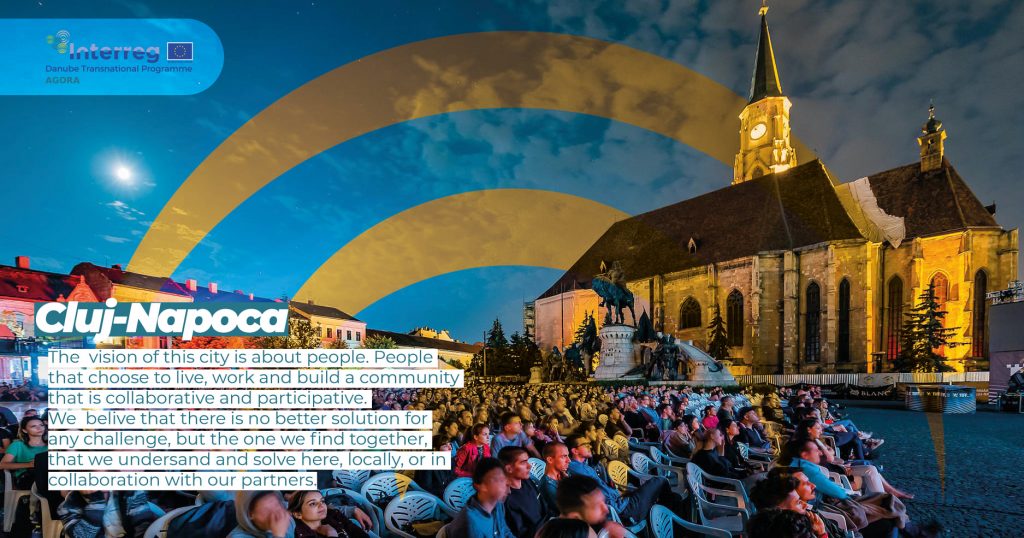
As such, we’re excited to be on board as a project partner and communications manager. We are enthusiastic about how this project will help shape the reuse and reintegration of vacant spaces in urban centers along the Danube. We’ll be contributing to it’s success through unique strategies such as webinars, city walk through videos, newsletters as well as actively utilizing the social media page to ensure the proper dissemination of information and developments to a larger audience.
As lead communication partner for scientific partners as well as local communities, one of Eutropian’s most inspiring and fulfilling achievements was the AGORAWalks/Talks Campaign, which arose from the challenge of not being able to have an in person kick-off event and consortium meetings due to Covid restrictions. As a result, we collected a series of videos from our AGORA cities with the aim to present their challenges and expectations embarking and implementing the project. By creating these videos,we involved some of the local stakeholders in their production, and we were able to enhance the level of interaction between public administrations and the local communities.
Agora serve as a pilot project that promotes and enacts policies that truly offer options and solutions for the re-use of underused and undervalued spaces in urban sprawls across the Danube region.
We are aware that each location has it’s own set of rules, regulations, challenges and issues: and we’re ecstatic to hit the ground running; to research and communicate with stakeholders in ensuring our cities harness their full potential and create inclusive environments that benefit society as a whole.
More tangibly however, AGORA delivers a Capacity Building Program and a Toolkit containing innovative policy instruments that promote knowledge on urban regeneration. It also unlocks local potential through community activation and digital platforms providing networking activities and project solutions, and finally, with Urban Regeneration Agendas strengthening institutional capacities. Partner cities also apply the knowledge and experience developed within AGORA on 10 different pilot projects. The Transnational Capacity Building and Transfer Program results will be exchanged among project partners and the Danube Region to produce Guidelines and Policy Recommendations for a Better Governance of Urban Regeneration in the Danube Region
One of the outputs of the project is the toolkit developed by our partners of the Urban Institute of the Republic of Slovenia (UIRS). The AGORA Toolkit is a valuable resource for enhancing institutional capacities and promoting transnational multilevel governance in regenerating underused urban areas in the Danube Region. It provides tools and models for public administration, joint decision making, co-design and financing to assist in the reuse of unused assets. The toolkit also simplifies procedures and streamlines processes to make the regeneration of urban assets easier.
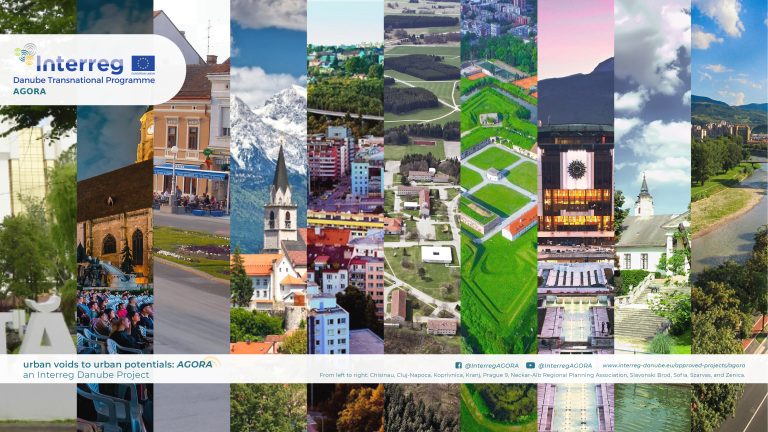

To adopt the Agendas at the local level, we used memorandums of understanding & developed final business plans and action plans that anticipated the requirements for site development.
Not only did we analyze our cities, but we also took action! Under the leadership of URBASOFIA, our project partners turned the knowledge gained through research and analysis into practical strategies for physical and social regeneration. Our AGORA communities played a key role in co-creating and implementing the Urban Regeneration Agendas and action plans right from the beginning of the process. The methodology involved gathering various types of data, engaging the quadruple-helix AGORA communities, and developing strategies based on local requirements and needs. To adopt the Agendas at the local level, we used memorandums of understanding. Throughout this process, we chose pilot projects for development and held awareness-raising events to promote the initiative.
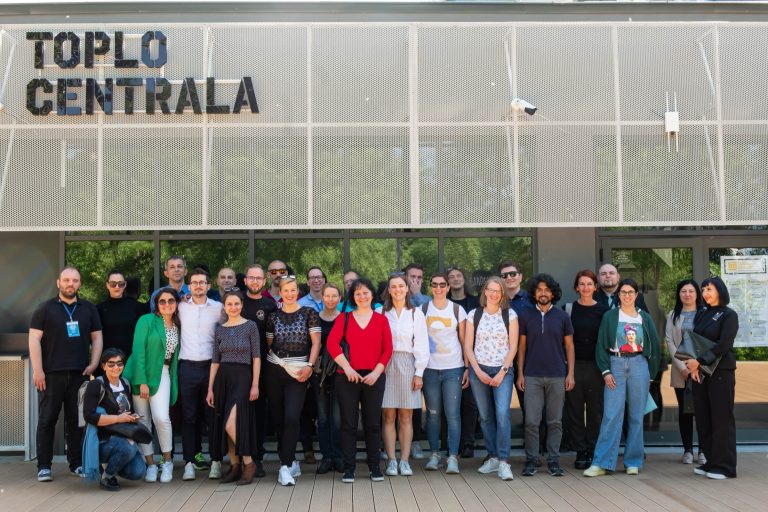
The AGORA journey was a fulfilling experience that brought together a diverse group of partners working across different levels and contexts. Our common goal was to create thriving cities by repurposing underused spaces and promoting sustainable land use practices that foster social cohesion and community empowerment. Exchanging knowledge and learning from one another, whether between local communities and administrations, or among scientific partners and city officials is essential to address common challenges and advance the work of urbanists.
Project co-funded by European Union funds (ERDF, IPA, ENI) with the financial contribution of partner states and institutions.
Overall budget: 2396870.05 EUR ; ERDF Contribution: 1892131.33 EUR ; IPA Contribution: 74580.64 EUR ; ENI Contribution: 70627.55 EUR
Project partners in Agora are the cities of Chisinau, Cluj-Napoca, Koprivnica, Kranj, Neckar-Alb Regional Association, Prague9 Distrit, Slavonski Brod, Sofia, Szarvas and Zenica.
Agora Scientific partners are: The Urban Planning Institute of the Republic of Slonevia (UIRS); pakora.net; Urbasofia; Metropolitan Research Institute (MRI); Eutropian.
For more information on the project, don’t be shy, reach out to Jorge Mosquera.

| Cookie | Duration | Description |
|---|---|---|
| cookielawinfo-checkbox-analytics | 11 months | This cookie is set by GDPR Cookie Consent plugin. The cookie is used to store the user consent for the cookies in the category "Analytics". |
| cookielawinfo-checkbox-functional | 11 months | The cookie is set by GDPR cookie consent to record the user consent for the cookies in the category "Functional". |
| cookielawinfo-checkbox-necessary | 11 months | This cookie is set by GDPR Cookie Consent plugin. The cookies is used to store the user consent for the cookies in the category "Necessary". |
| cookielawinfo-checkbox-others | 11 months | This cookie is set by GDPR Cookie Consent plugin. The cookie is used to store the user consent for the cookies in the category "Other. |
| cookielawinfo-checkbox-performance | 11 months | This cookie is set by GDPR Cookie Consent plugin. The cookie is used to store the user consent for the cookies in the category "Performance". |
| viewed_cookie_policy | 11 months | The cookie is set by the GDPR Cookie Consent plugin and is used to store whether or not user has consented to the use of cookies. It does not store any personal data. |
